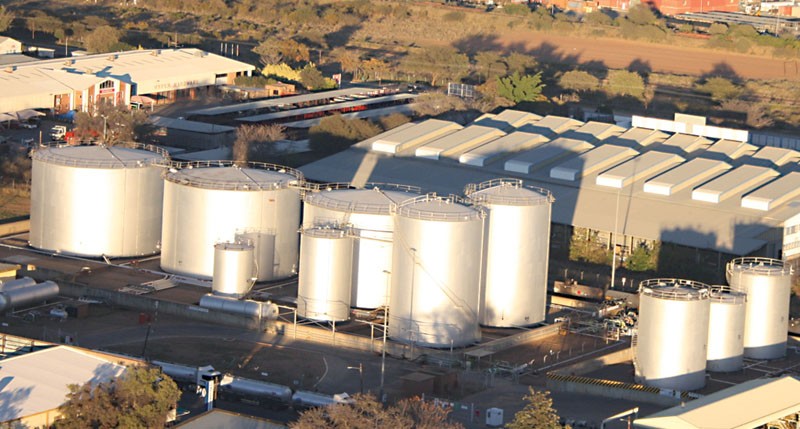Fuel dealers warned against petroleum smuggling
Lesedi Mkhutshwa | Friday August 16, 2019 15:16


Presenting on how to handle petroleum products, Venjonoka said illegal smuggling of petroleum products has become a common occurrence around the country.
He said that the problem is prevalent largely in border towns because of the clashing fuel prices between Botswana and the neighbouring countries.
“We call it smuggling of petroleum products because it occurs illegally. What surprises us, as BERA is that there is no need for the illegal practice to happen in such a manner, “ he said.
He further reminded filling station owners that allowing smuggling of petrol products might actually cost them even more because if they get arrested conspiring with the perpetrators they would be charged for breaking the law.
Venjonoka said: “You may all wonder why you are even involved in the matter. It is simple. You are the ones helping the perpetrators to break the law. I know that all of you have witnessed these activities taking place at your fillings stations.” He said that the major problem is that the filling station industry has allowed smuggling of petroleum products to grow adding that some people in the neighbouring countries have lost lives because of the illegal practice.
The concerned senior petroleum inspector also said that the illegal practices have a potential to sour Botswana’s relations with the neighbouring countries who believe Botswana allows such criminal behaviour.
He gave the example of the Energy and Water Utilities Regulatory Authority (EWURA) of Tanzania and Zimbabwe Energy Regulatory Authority (ZERA) who have complained of the growth smuggling of oil products from Botswana to their countries.
He said that the situation makes Botswana to look bad even though it is unnecessary because it can be prevented by filling stations.
Venjonoka shared statistics of a survey they conducted recently about cases of smuggling illegal petroleum products in the region saying 44 cases were registered along the Botswana-Zimbabwe border at or near Maitengwe, Matsiloje and Ramokgwebana villages.
In the fight against the problem they retrieved 75,535 litres, 2,045 litres, and 10,125 litres of petrol, diesel and paraffin respectively around the three villages.
He indicated that they also registered 113 similar cases in Masunga and Tshesebe also on the border with Zimbabwe in which they retrieved 81,315 litres of petrol.
Summing up the numbers, Venjonoka said that they had recorded 157 cases of illegal oil smuggling in which 156,850 litres, 2,045 litres, 10,125 litres were for petrol, diesel and paraffin respectively.
He is of the view that the problem could be bigger than the recorded statistics because some of the culprits destroyed the border fence so that they can continuously use it as access to perform prohibited activities.
He said that in some cases the perpetrators removed all the chairs in a Mini-bus so that they can transport the fuel and easily smuggle it through the border.
“There was a time we stopped a Honda Fitt and we pulled out 28 containers of fuel. But I will repeat myself and say that filling stations are the cause of all this,” he said.
Venjonoka further said that to make matters worse, the culprits
use unauthorised containers and transportation vehicles, which posed a serious health and safety risk.
He added that the illegal practice promoted unfair trade which negatively impacted neighbouring countries and also deprived the government of levies and taxes.
One of the filling station owners in Masunga who preferred anonymity said that some of their businesses were surviving because of people whom he suspects might be the oil smugglers.He said that they were working under pressure from their fuel suppliers hence it will be difficult for them to stop assisting the fuel smugglers.
“I cannot refuse someone who come to my filling station with 150 containers looking for petrol or diesel because I have to push up volumes so that my supplier can refill for me. In seven days our fuel providers want us to sell 48,000 litres which is impossible looking at our locality,” he said.
He added that in rural areas business was very poor because only a handful of people purchased fuel from them therefore they do not have a choice but to help anyone who came along including smugglers.
